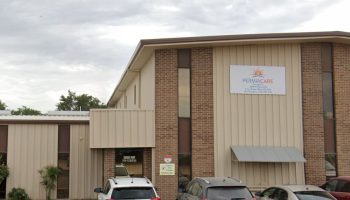About Nexus Recovery Center
Nexus Recovery Center is a drug and alcohol treatment center for women in Dallas, Texas. They work with women ages 18 and older, including women who are pregnant or parenting young kids, to help you get the comprehensive treatment you need to go beyond your addiction. That starts with their medical detox.
At the medical detox center here, you’ll have thorough medical monitoring and care 24 hours a day. They’ll make sure you’re safe during your detox, and they’ll also use medication assisted treatment (MAT) to reduce your withdrawal symptoms and improve your comfort throughout the process. If you struggle with opiate addiction like addiction to heroin or fentanyl, they can also offer specialized medications for your withdrawal.
During that time they also get you started with therapy for your addiction. With evidence based techniques like motivational interviewing (MI) and relapse prevention planning as well as overdose prevention planning, they’ll help you start your recovery journey strong. In addition to this they have psychiatric care so during your detox they’ll also treat and stabilize any co-occurring psychiatric conditions you have.
Typically after detox, you’ll transition into their residential rehab. They have a program for adult women and a separate program for pregnant and parenting women where you can bring your young kids with you. They have multiple levels of outpatient programs, too, to support you after residential rehab.
They accept insurance plans from most major providers like Magellan and BCBS of Texas and Cigna. They can also work with you on funding and financing if you don’t have insurance.
Clients at this detox and treatment center have fantastic things to say about the facility. Many of them credit this rehab with saving their lives. They say that the staff here make their detox experience as smooth and comfortable as possible while treating them with compassion and respect, and that the treatment program is practical and beneficial.
Levels of Care
-
Inpatient
Inpatient and residential programs provide round-the-clock medical and emotional support as you live at the treatment facility. This level of care may be recommended if you have severe addictions or mental health conditions since it removes outside distractions and allows you to focus solely on therapy.
-
Outpatient
In outpatient therapy, you’ll attend therapy sessions several times each week while living at home. This is ideal if you have a strong support system and a lower risk of relapse. Outpatient treatment offers flexibility to maintain work, school or family obligations.
-
Aftercare
Aftercare programs provide ongoing support after you complete a rehab program. They may include several components to help you maintain sobriety including therapy, community support groups and relapse prevention strategies. This gives you a network of resources as you reintegrate into your daily life.
-
Dual Diagnosis
Dual diagnosis programs address substance use disorders and co-occurring mental health conditions simultaneously. This integrated approach to care improves the likelihood of long term recovery and stability by addressing the root causes of addiction.
-
Intervention
An intervention is a structured and professionally guided conversation with an individual who is struggling with addiction. During the conversation, family and friends will encourage you to seek treatment. This is often a pivotal step for those resistant to getting help.
Detox Service Setting
-
Inpatient Detox
Inpatient detox occurs in a dedicated treatment facility. You’ll live there around the clock and receive intensive medical support and supervision to help manage your withdrawal symptoms. It is suitable for individuals with moderate to severe addictions as it ensures a stable detox environment.
-
Outpatient Detox
Outpatient detox gives you access to medically supervised withdrawal services while still allowing you to live at home. You’ll attend a clinic for treatment and monitoring. This flexible option is suitable for those with mild to moderate withdrawal symptoms who have strong support systems.
Programs
-
Adult (18+)
Adult programs address the substance use and life challenges specific to adults. Therapists can deliver sessions in individual, group and family settings. Services often include job support and life skills training in a structured environment.
-
Alcohol Detox
Alcohol detox programs offer medical support to help individuals withdraw safely from alcohol. Your care team may use medications to ease your symptoms and provide medical monitoring to address complications.
-
Cognitive Behavioral Therapy
Cognitive behavioral therapy focuses on changing harmful thought patterns and behaviors associated with addiction. You’ll learn healthier coping mechanisms by identifying and replacing negative thoughts. This improves your emotional resilience and decreases your relapse potential.
-
Exercise Therapy
Exercise therapy incorporates physical activity into treatment to promote mental and physical health. Regular exercise reduces stress, boosts mood and enhances your overall wellbeing. This can give you a positive outlook and lower your relapse risk.
-
Opioid Detox
Opioid detox uses medications to ease severe withdrawal symptoms. It also includes medical supervision to help you manage potential complications. These services allow you to stabilize and begin a recovery plan.
-
Women
Women's programs offer a safe and supportive space to focus on gender specific issues such as trauma, family roles and mental health conditions. Therapists tailor the sessions to address women's needs and foster empowerment in a healing and nurturing environment.
-
Young Adult (18 - 25)
Young adult programs are designed for individuals who are transitioning into adulthood. Topics of discussion typically include identity, independence and peer relationships. Providers may also offer life skills training and career support.
Payment Options
- Payment Assistance
- Medicaid
- Private Insurance
- Self Pay
Accreditations
-
 Joint Commission
Joint Commission
Contact
8733 La Prada Drive
Dallas, TX 75228




